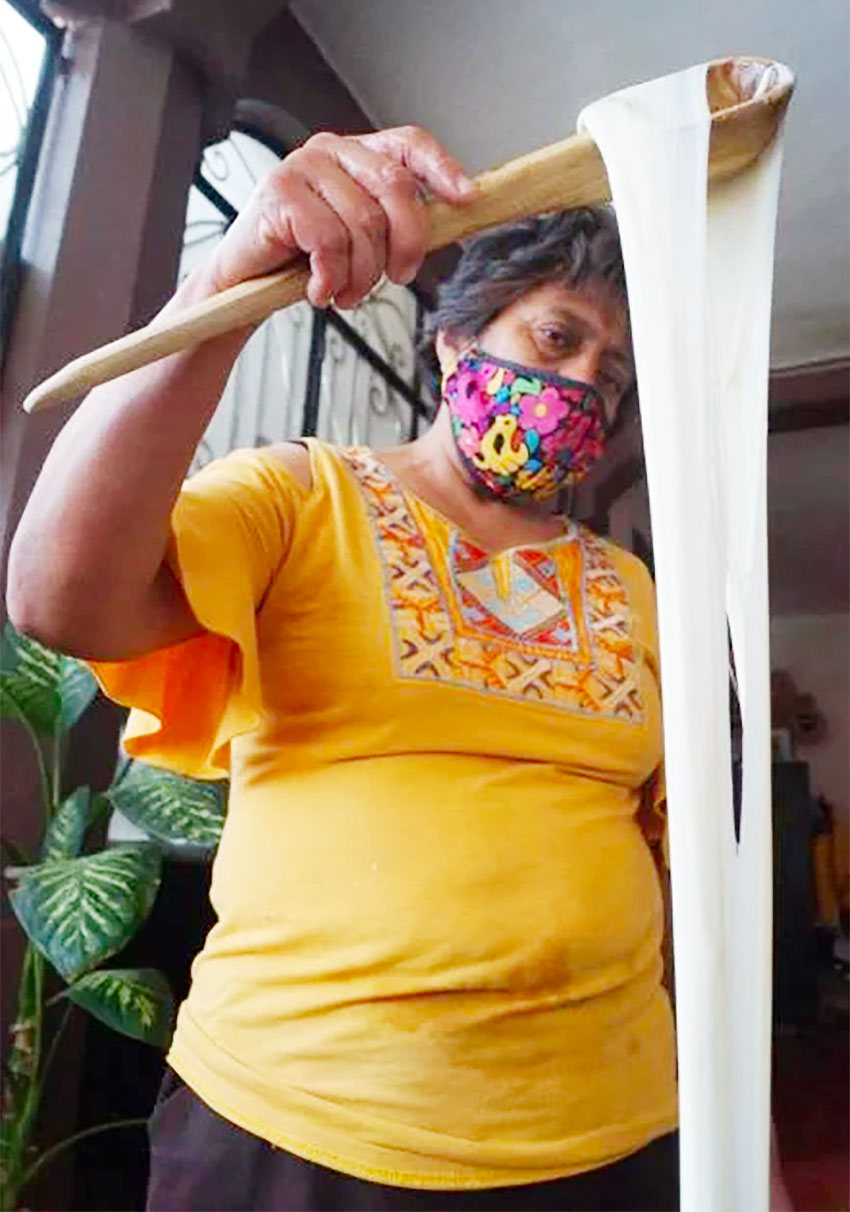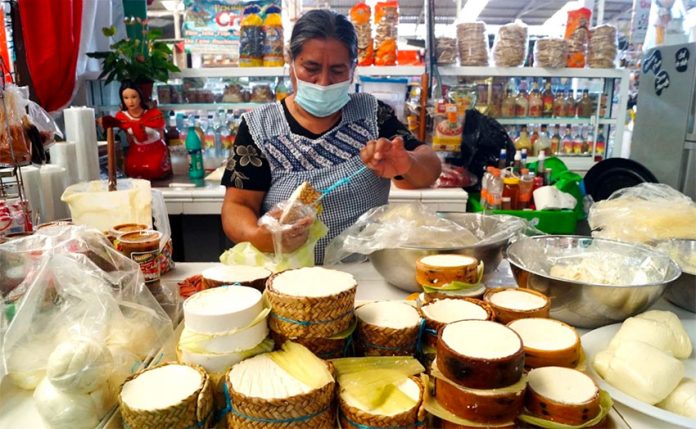An artisan cheesemaker from Oaxaca has a blunt message for many of the large companies with which she competes: your cheese isn’t cheese.
After the Economy Ministry announced an immediate ban on the sale of 19 brands of cheese because they don’t comply with official standards, Zoyla López Pérez said the prohibited products “are not cheese – they’re like plastic.”
“Especially [commercial] quesillo,” she said referring to queso Oaxaca, a stringy, semi-hard white cheese.
“They’re not genuine [cheeses] made with milk, they have chemicals and preservatives.”
In an interview with the newspaper El Universal, the 55-year-old, third generation cheesemaker from Reyes Etla – a famous cheese-producing town about 20 kilometers north of Oaxaca city – said that all her cheese is made with nothing more than organic milk, salt and rennet.

“We curdle 100 liters of milk per day. I make quesillo and [other kinds of] cheese because people look for both,” López said.
Among the products sold in her family’s cremería, or dairy store, are queso panela, requesón (a whey cheese similar to ricotta) and cheeses flavored with jalapeño and serrano chiles, epazote (a Mexican herb) and even chapulines (toasted grasshoppers).
López said her cheeses have absolutely nothing in common with those that are made by large companies and sold in chain supermarkets.
“[My cheeses] have a nice taste, they’re smooth. … Our quesillo is creamy. It also has a different color [to commercial quesillo], a pearly cream color,” she said.
López added that her products are nutritious and high in calcium, boasting that she sells them to doctors and nurses.
The cheesemaker acknowledged that the ban on the 19 different cheese brands, among which are Philadelphia, Lala and Fud, will likely benefit small, artisan producers. But she asserted that her products will continue to sell regardless of the prohibition.
“They’re products that are consumed daily, like all foods. Our products are [about] quality, not quantity. … There are many cheeses made in factories, … all those [banned] brands, but they’re not genuine.”
Source: El Universal (sp)
